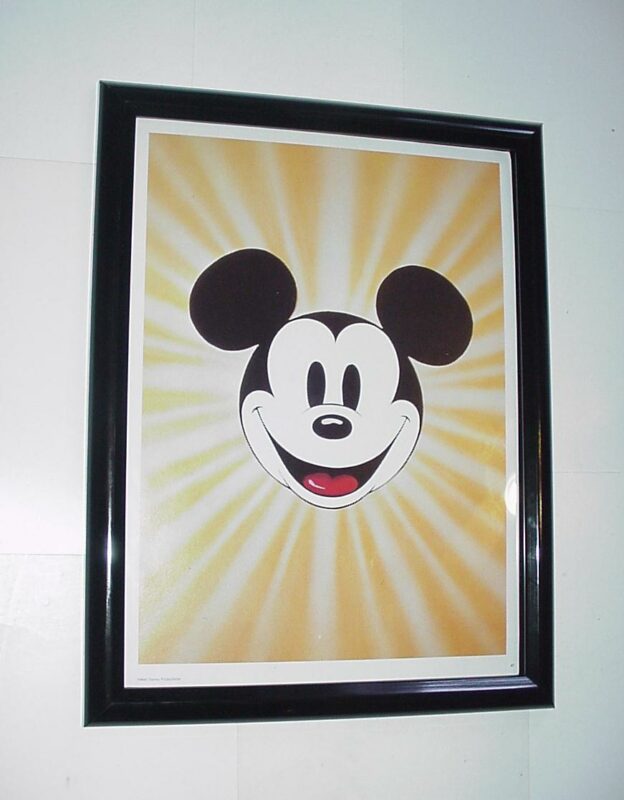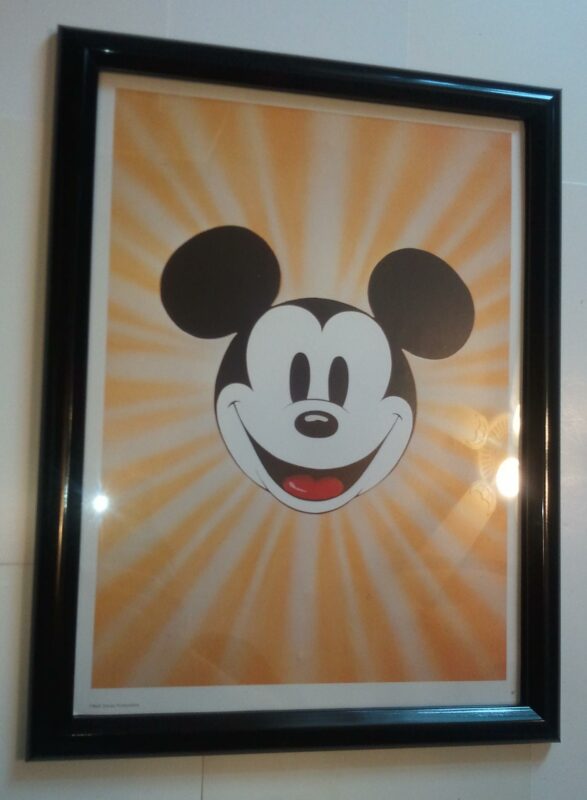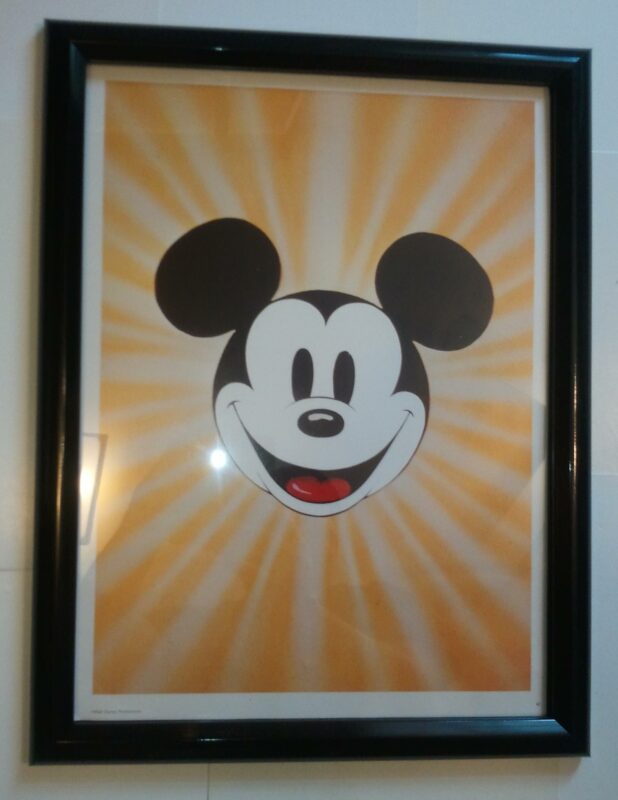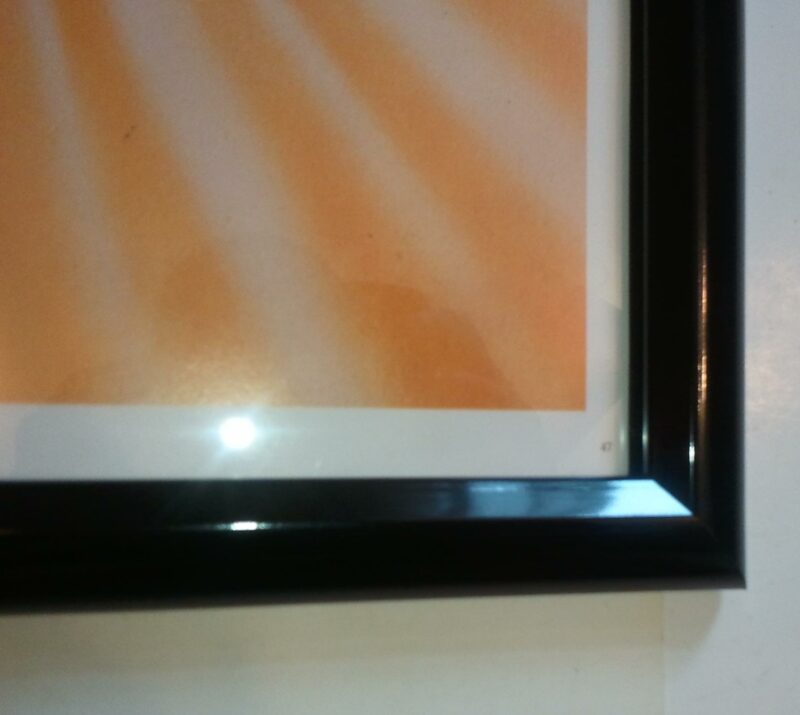Description
Mickey Mouse’s original design pre-pupils! Mickey Mouse is a funny animal cartoon character and the official mascot of The Walt Disney Company. He was created by Walt Disney and Ub Iwerks at the Walt Disney Studios in 1928. An anthropomorphic mouse who typically wears red shorts, large yellow shoes, and white gloves, Mickey has become one of the most recognizable cartoon characters in the world. Mickey first was seen in a single test screening (Plane Crazy). Mickey officially debuted in the short film Steamboat Willie (1928), one of the first sound cartoons. He went on to appear in over 130 films, including The Band Concert (1935), Brave Little Tailor (1938), and Fantasia (1940). Mickey appeared primarily in short films, but also occasionally in feature-length films. Ten of Mickey’s cartoons were nominated for the Academy Award for Best Animated Short Film, one of which, Lend a Paw, won the award in 1942. In 1978, Mickey became the first cartoon character to have a star on the Hollywood Walk of Fame. Beginning in 1930, Mickey has also been featured extensively as a comic strip character. His self-titled newspaper strip, drawn primarily by Floyd Gottfredson, ran for 45 years. Mickey has also appeared in comic books and in television series such as The Mickey Mouse Club (1955–1996) and others. He also appears in other media such as video games as well as merchandising, and is a meetable character at the Disney parks. Mickey generally appears alongside his girlfriend Minnie Mouse, his pet dog Pluto, his friends Donald Duck, and Goofy, and his nemesis Pete, among others (see Mickey Mouse universe). Originally characterized as a mischievous antihero, Mickey’s increasing popularity led to his being rebranded as an everyman, usually seen as a flawed, but adventurous hero. In 2009, Disney began to rebrand the character again by putting less emphasis on his pleasant, cheerful side and reintroducing the more mischievous and adventurous sides of his personality, beginning with the video game Epic Mickey.
In the spring of 1928, Disney asked Ub Iwerks to start drawing up new character ideas. Iwerks tried sketches of various animals, such as dogs and cats, but none of these appealed to Disney. A female cow and male horse were also rejected. They would later turn up as Clarabelle Cow and Horace Horsecollar. (A male frog, also rejected, would later show up in Iwerks’ own Flip the Frog series.) Walt Disney got the inspiration for Mickey Mouse from a tame mouse at his desk at Laugh-O-Gram Studio in Kansas City, Missouri. In 1925, Hugh Harman drew some sketches of mice around a photograph of Walt Disney. These inspired Ub Iwerks to create a new mouse character for Disney. “Mortimer Mouse” had been Disney’s original name for the character before his wife, Lillian, convinced him to change it, and ultimately Mickey Mouse came to be. The actor Mickey Rooney has claimed that, during his Mickey McGuire days, he met cartoonist Walt Disney at the Warner Brothers studio, and that Disney was inspired to name Mickey Mouse after him.
Ub Iwerks designed Mickey’s body out of circles in order to make the character simple to animate. Disney employees John Hench and Marc Davis believed that this design was part of Mickey’s success – it made him more dynamic and appealing to audiences. Mickey’s circular design is most noticeable in his ears, which in traditional animation, always appear circular no matter which way Mickey faces. This made Mickey easily recognizable to audiences and made his ears an unofficial personal trademark. Even today, the symbol “Mickey Mouse” is often used by the Disney Company to represent Mickey (see Hidden Mickey). This later created a dilemma for toy creators who had to recreate a three dimensional Mickey. In animation in the 1940s Mickey’s ears were animated in perspective. Animator Fred Moore would later redesign Mickey’s body away from its circular design to a pear-shape design. Colleague Ward Kimball praised Moore for being the first animator to break from Mickey’s “rubber hose, round circle” design. Although Moore himself was nervous at first about changing Mickey, Walt Disney liked the new design and told Moore “that’s the way I want Mickey to be drawn from now on.” Each of Mickey’s hands has only three fingers and a thumb. Disney said that this was both an artistic and financial decision, explaining “Artistically five digits are too many for a mouse. His hand would look like a bunch of bananas. Financially, not having an extra finger in each of 45,000 drawings that make up a six and one half minute short has saved the Studio millions.” In the film The Opry House (1929), Mickey was given white gloves as a simple way of contrasting his naturally black hands against his black body. Mickey’s eyes, as drawn in Plane Crazy and The Gallopin’ Gaucho, were large and white and defined by black outlines. In Steamboat Willie the black outlines were removed, although the upper edges still contrasted with his head. Mickey’s eyes were later re-imagined as only consisting of the small black dots which were his pupils, while what were the upper edges of his eyes became a hairline. This is evident only when Mickey blinks.
This item may or may not show a tiny number on the image…please inspect the pictures carefully.
Frame is shrinkwrapped until time of purchase. Ships boxed with packing peanuts.
THE PERFECT GIFT!
Related products
-
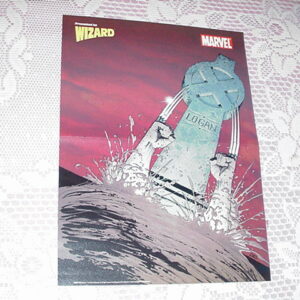
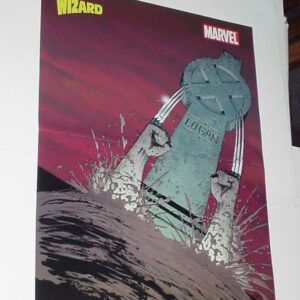
Wolverine Poster #13 Lives! by John Cassaday X-Men
$34.99 Add to cart -
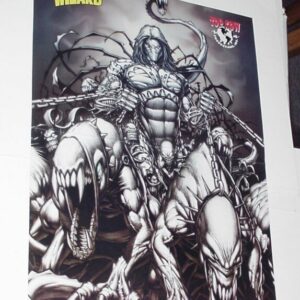
Darkness Poster # 4 Dale Keown Darklings in Chains Pitt Hulk
$29.99 Add to cart -
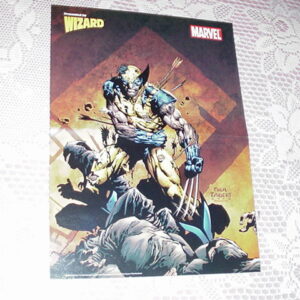
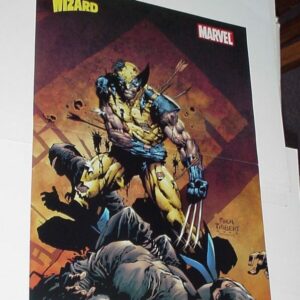
Wolverine Poster #16 vs The Hand The End by David Finch Ninjas
$39.99 Add to cart -
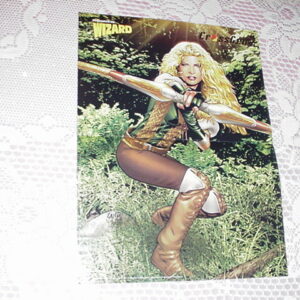
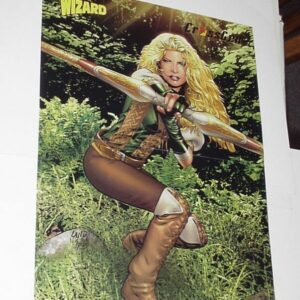
CrossGen Poster #18 Arwyn Greg Land Sojourn Bow of Ayden
$29.99 Add to cart
